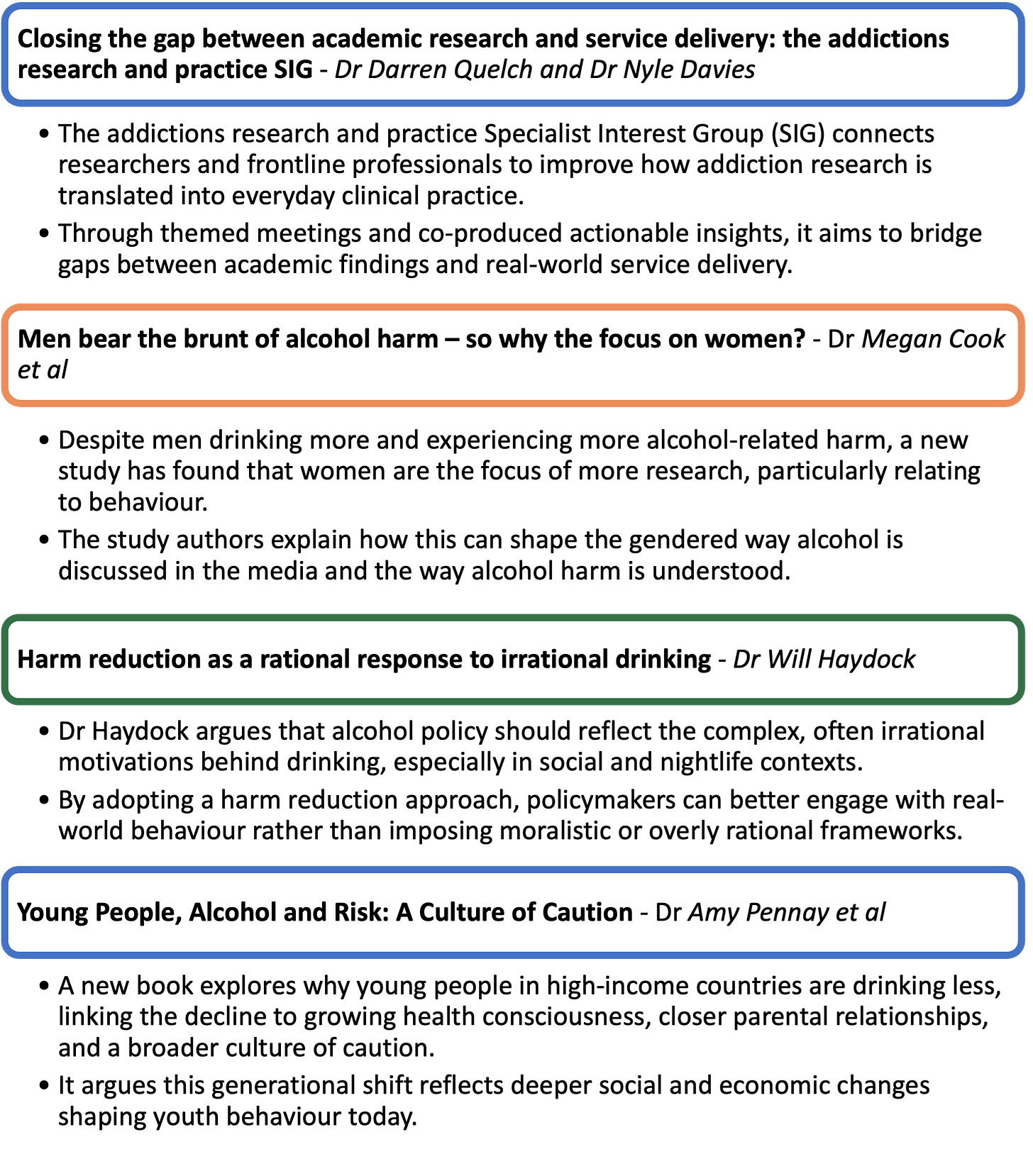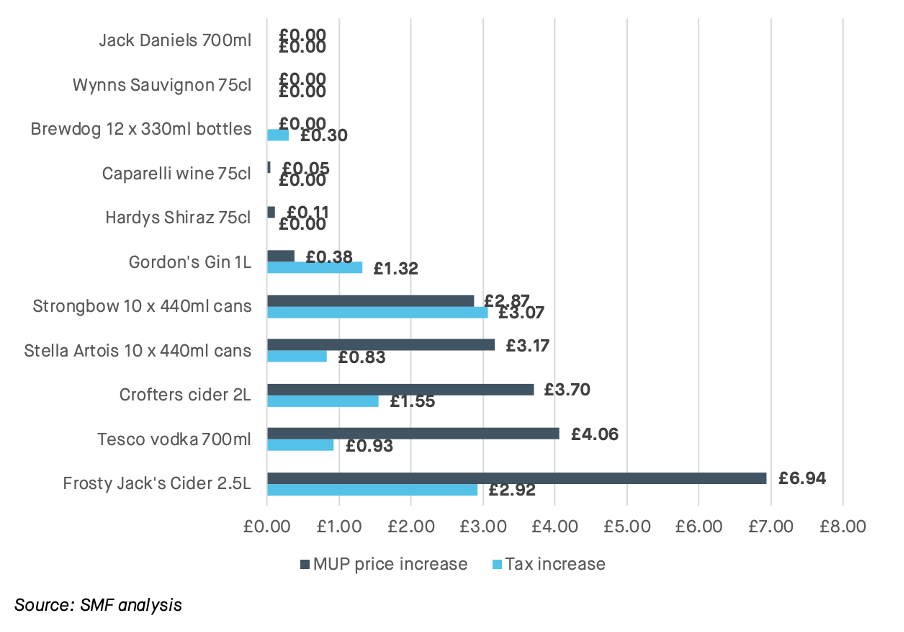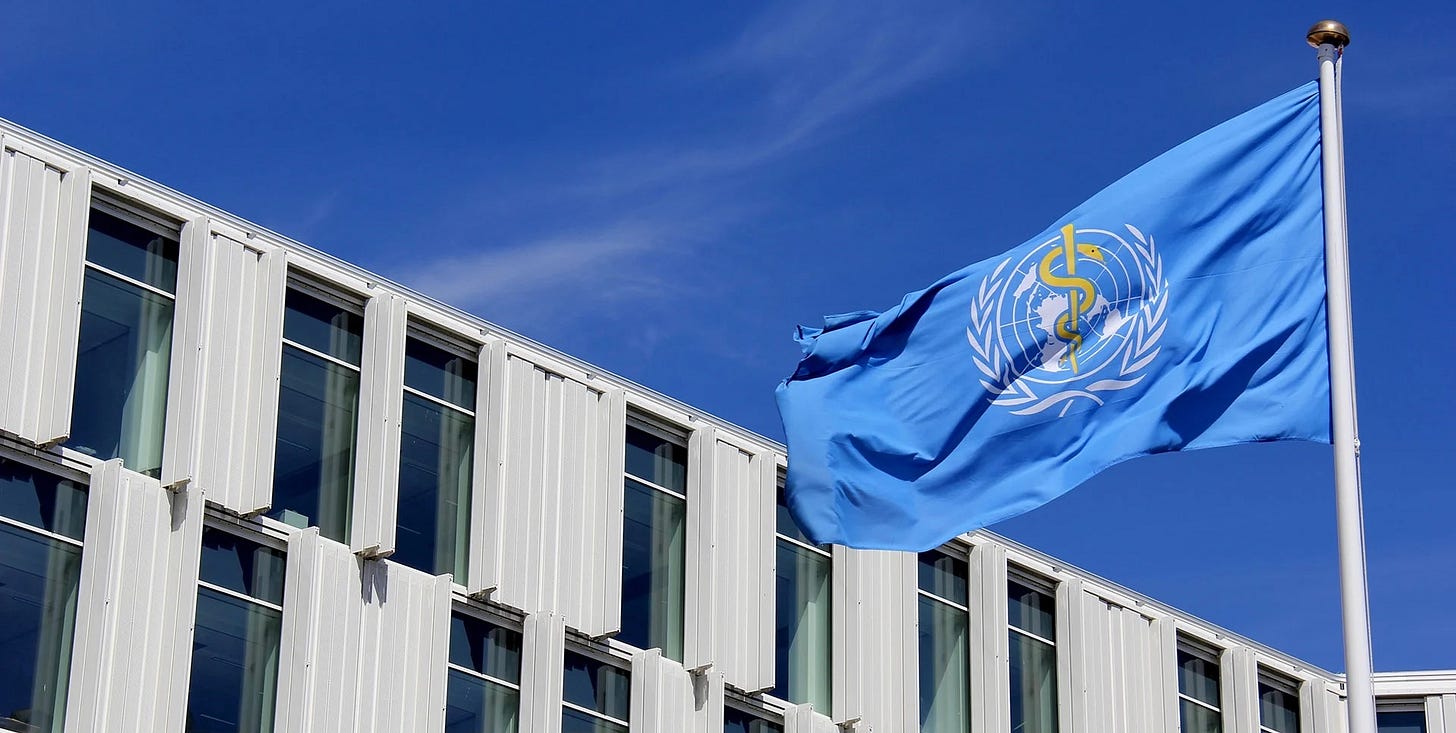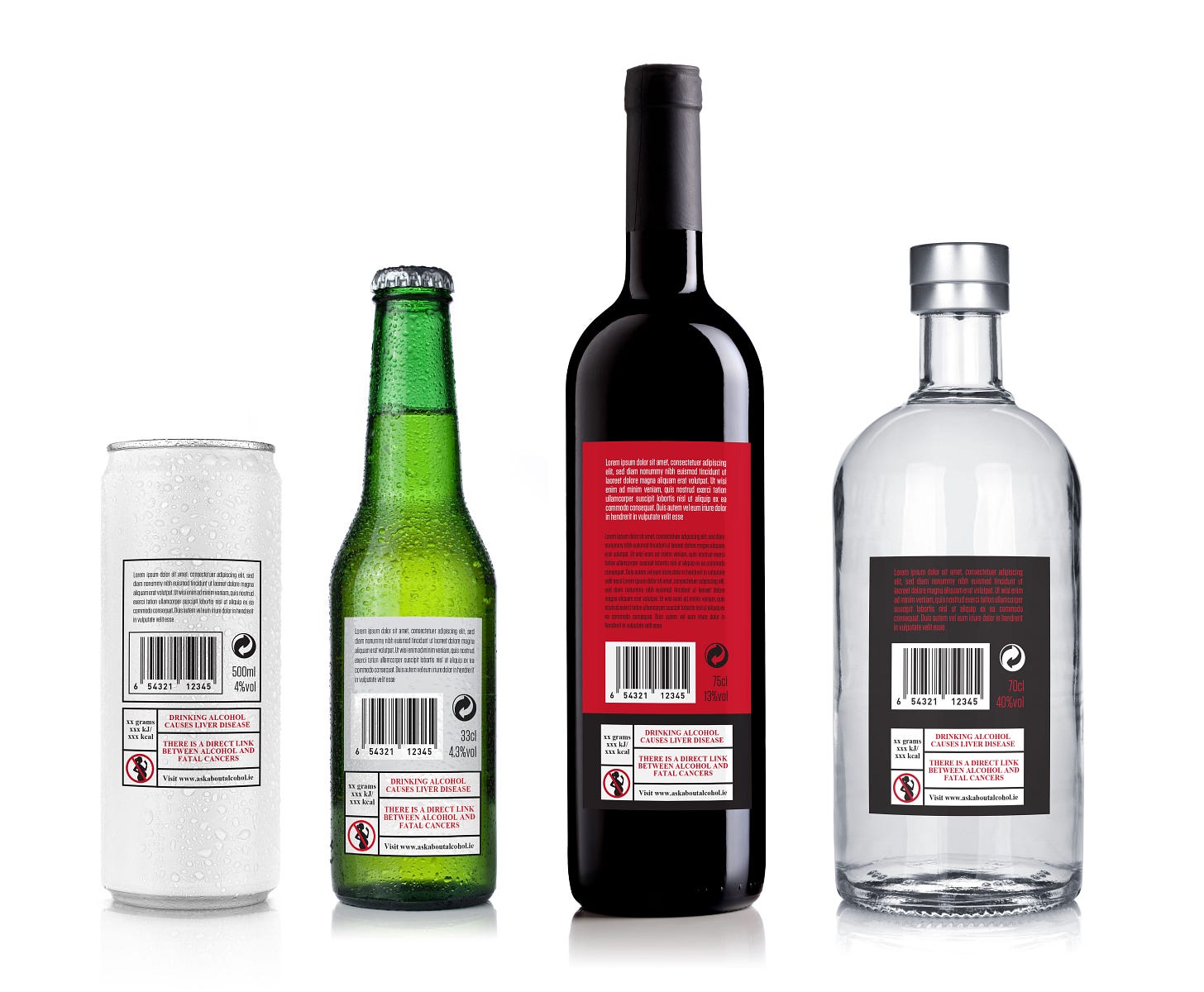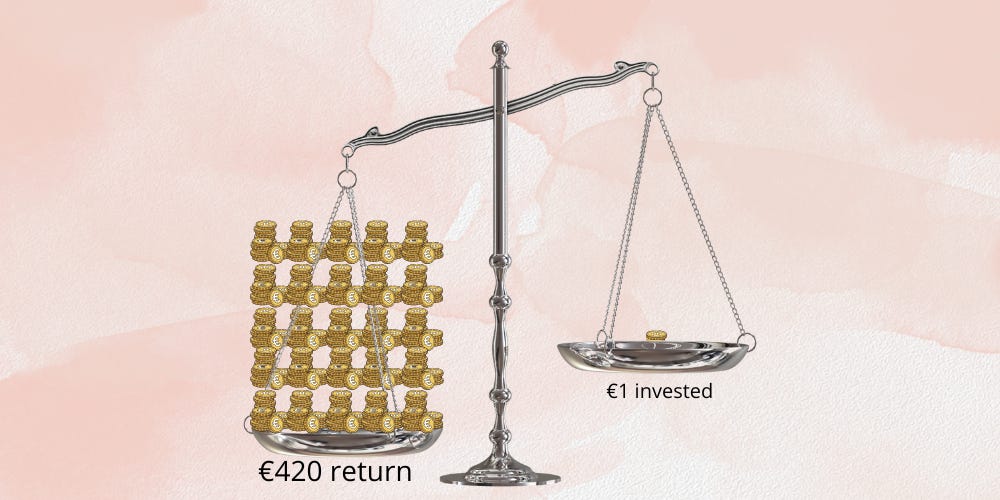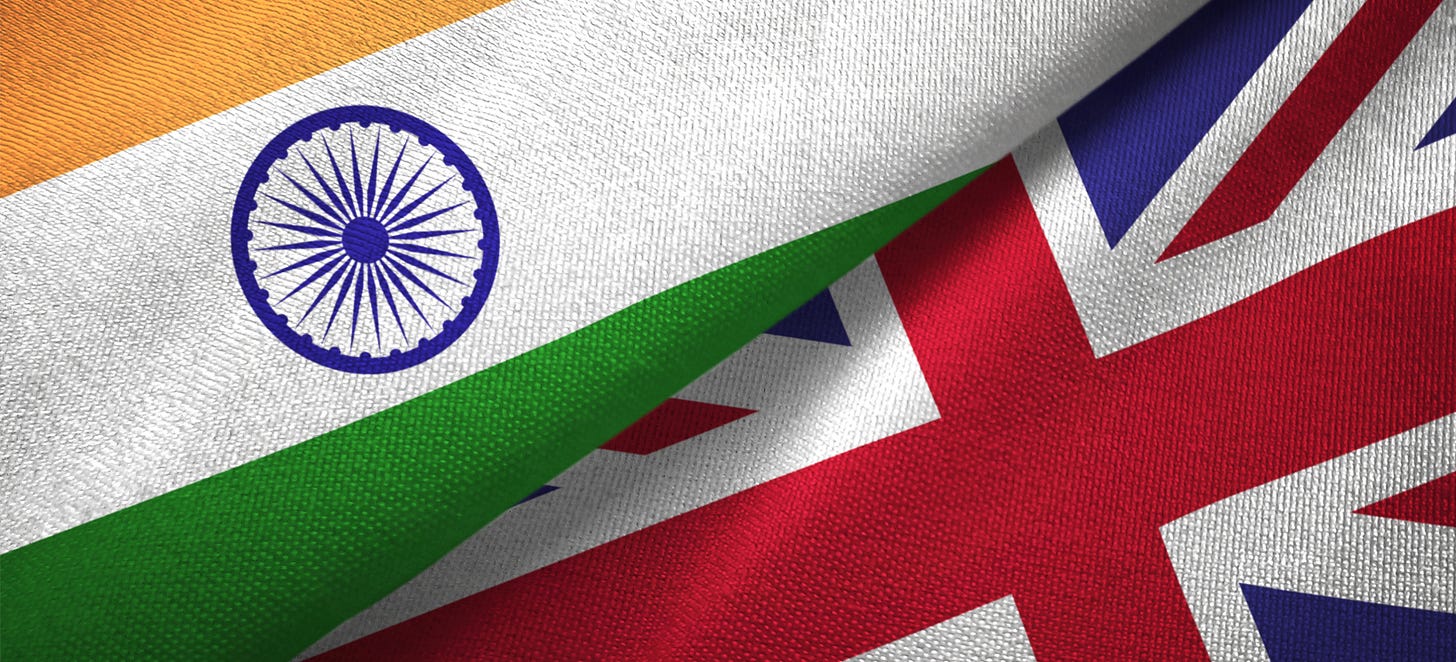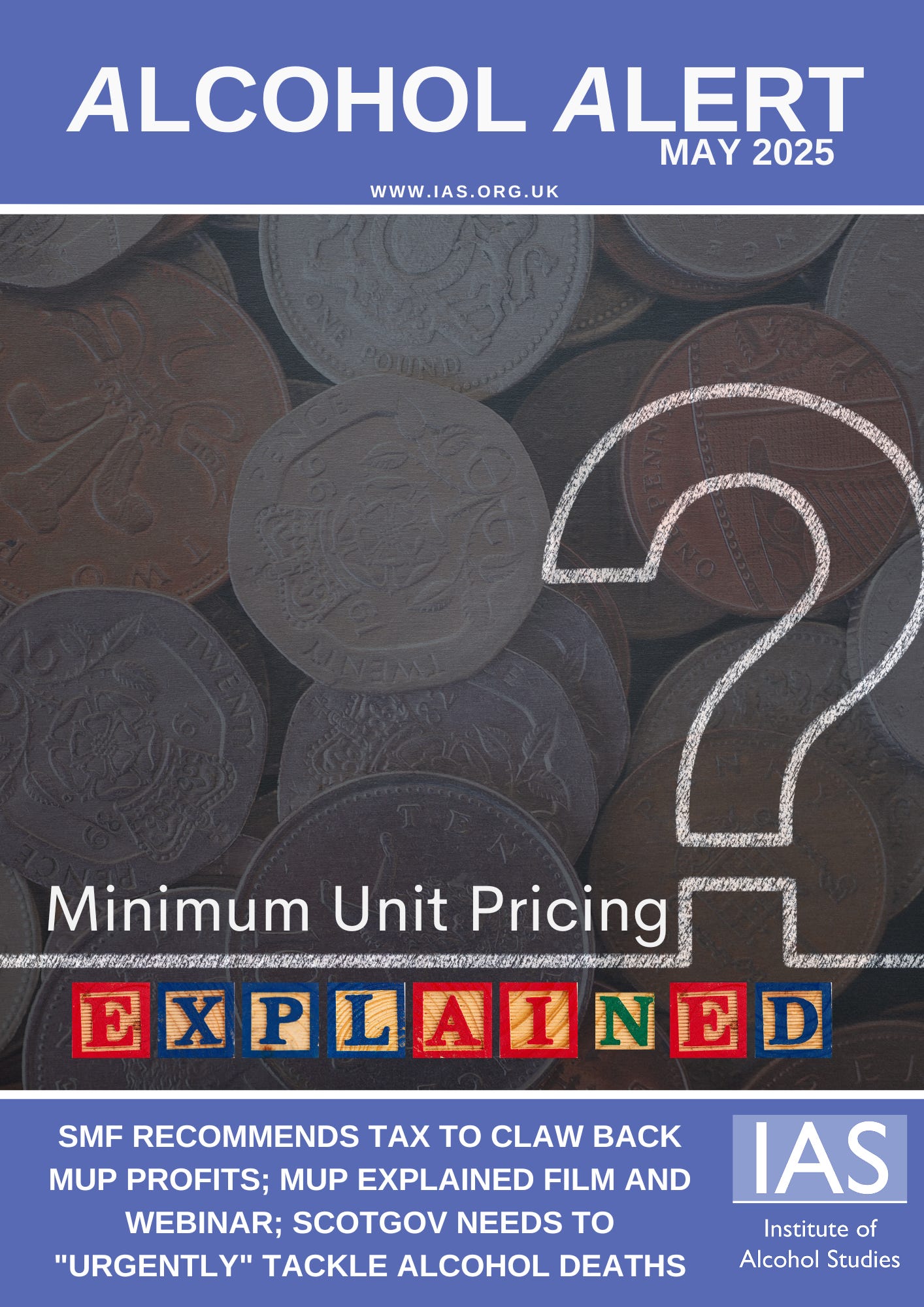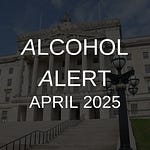Hello and welcome to the Alcohol Alert, brought to you by The Institute of Alcohol Studies.
In this edition:
IAS blogs
An introduction to England’s alcohol treatment system 🎵 podcast feature 🎵
SMF think tank recommends windfall tax if England introduces Minimum Unit Pricing
Minimum Unit Pricing: Explained – film and webinar
Over 70 organisations call for Scottish Government to urgently tackle alcohol deaths
Alcohol-related cancer deaths double in the U.S.
The WHO publishes three reports, hosts three webinars, and launches the European Health Alliance
Ireland’s deputy PM says health warnings may need to be reconsidered
Friend of woman who died from methanol poisoning calls for better education in schools
Alcohol taxes provided a 420 to 1 return on investment in Lithuania
UK announces trade deal with India
Alcohol Toolkit Study: update
We hope you enjoy our roundup of stories below: please feel free to share. Thank you.
IAS blogs
To read blogs click here.
An introduction to England’s alcohol treatment system 🎵 podcast feature 🎵
In our latest podcast Dr Will Haydock, Executive Director of Collective Voice, sheds light on alcohol treatment services in England. Representing an alliance of charities supporting people with alcohol and other drug issues, Haydock emphasises that free treatment is available in every local area – yet awareness remains low. He discusses barriers like stigma and the misperception that support is costly or inaccessible. Haydock calls for a whole-system approach, integrating alcohol treatment into broader health and social care.
“There can be almost more shame around having developed a problem with alcohol than with other drugs.”
SMF think tank recommends windfall tax if England introduces Minimum Unit Pricing
With calls growing for England to follow Scotland and Wales in introducing minimum unit pricing (MUP) for alcohol, a new report from the Social Market Foundation has called for a windfall tax on retailers to prevent supermarkets from profiting unfairly from the policy.
The think tank’s report, “The Price is Right” – which was sponsored by IAS and Alcohol Focus Scotland – highlights how MUP is proven to reduce alcohol harm. But it also warns that, without further action, the policy could hand retailers an estimated £550 million in extra profits annually across Great Britain, while reducing Treasury alcohol duty revenues by over £300 million.
The authors propose a new Minimum Unit Tax (MUT) alongside MUP, ensuring that all alcohol sold is taxed at a minimum rate of 36p per unit. This, they argue, would better target the products driving retailer windfalls, without significantly affecting moderate drinkers or increasing prices further. An MUT at 36p would raise nearly £500 million; a higher rate for cheap spirits could push the total to £659 million. The following chart shows how the tax would specifically target products whose profitability rises under MUP.
Price and tax changes of selected products under a 65p MUP and a two-rate MUT (46p for spirits, 36p for everything else)
Although raising alcohol duty across the board is an option, the report finds that this would be a blunt tool – poorly targeted and politically risky. Instead, the MUT model offers a more precise way to reclaim windfall profits and bolster public health.
For devolved governments like Scotland and Wales, which lack powers over alcohol duty, the report explores alternative tax routes such as licensing fees or levies through the business rates system – though these are considered more complex and less effective.
The report concludes that while MUP is effective and popular in Scotland, public confidence could be undermined if supermarkets are seen to benefit disproportionately. A targeted tax, it argues, would safeguard the legitimacy of the policy and support wider public health goals.
Minimum Unit Pricing: Explained – film and webinar
The latest film in our Explained series focuses on minimum unit pricing (MUP), covering how it works, the evidence from Scotland and Wales, the impact on dependent and low-income drinkers, and how England could improve on the policy.
IAS also hosted a webinar on MUP, which comprehensively covered the topic and included presentations from leading experts in alcohol research and advocacy, Professor John Holmes and Dr Abi Stevely of the University of Sheffield, Alison Douglas of Alcohol Focus Scotland, Andrew Misell of Alcohol Change UK, and Jake Shepherd of the Social Market Foundation.
Over 70 organisations call for Scottish Government to urgently tackle alcohol deaths
In early May, over 70 charities, recovery groups, medical royal colleges, and alcohol and drug partnerships called for Scottish ministers to prioritise early detection and treatment of liver disease to address alcohol deaths in a recent briefing.
The coalition pointed to the cost of harm in the country, estimated at £10 billion in Scotland alone, and told First Minister John Swinney that it is “essential” to tackle this harm if he wants to fulfil his priorities of eradicating child poverty, boosting the economy, and improving public services.
“We also call on the Scottish Government to develop and implement a comprehensive and integrated alcohol strategy which takes a preventative approach to reducing alcohol harm.”
Laura Mahon of Alcohol Focus Scotland, said:
“We need concrete measures to prevent this. Time is running out for this Government to demonstrate genuine results, so together with partners, we’ve provided a roadmap for delivery. Now we need to see clear leadership and investment.
“It is also crucial that we consider the bigger picture. People don’t just become unwell overnight. We are continually being fed the message that alcohol has an essential role in our lives, normalising drinking and influencing our consumption habits. We need to challenge this with well evidenced and cost-effective prevention measures adopted as part of a robust strategy for now and into the future.”
Responding to the group, Health Secretary Neil Gray said:
“We remain focused on reducing alcohol-related harm and deaths. Early detection of liver disease is a priority which is being delivered by the national Centre for Sustainable Delivery.
In the Scottish parliament, Labour MSP Carol Mochan discussed the briefing, asking if Swinney would consider the “briefing’s proposals as he prepares to publish the programme for government next week?”. First Minister John Swinney responded that the issues raised will be taken very seriously. He said the government has taken several measures but that these have not addressed “all the circumstances we face, and we must be open to some of the suggestions that are made…it requires long-term intervention and action - a combination of public awareness and healthcare and support services to meet individuals’ needs”.
When the Programme for Government was then published the following week, both Alcohol Focus Scotland and SHAAP were quick to point out failings. SHAAP’s Chair, Dr Alastair MacGilchrist, stated that:
“Despite declaring an alcohol emergency in 2021, the Scottish Government has disappointingly decided not to act. Alcohol-related deaths are at their highest since 2008 but alcohol is barely given a mention in the Programme for Government.”
On the lack of an automatic uprating system for MUP, he said the government have missed the chance to ensure “its impact wasn’t eroded by inflation. It would also have secured the Scottish Government’s legacy as having pioneered MUP in Scotland and taken legislative action to tackle alcohol-related harm.”
Laura Mahon stated that it was “disappointing” that the Programme included no firm commitments to seriously tackle alcohol deaths, and that a robust alcohol strategy was needed.
In related news, it was announced that the ban on drinking alcohol on ScotRail services will come to an end from 02 June. The ban was introduced as part of COVID-19 restrictions in 2020. The Programme for Government stated that the ban was “counter-productive and ineffective”, but that ScotRail will continue to tackle anti-social behaviour, particularly where it affects women and girls. Swinney said he will replace the alcohol ban “with new regulations that focus restrictions more effectively on particular times and locations, similar to previous restrictions.”
Alcohol-related cancer deaths double in the U.S.
According to a new study, deaths from alcohol-related cancers have almost doubled in the United States (U.S.) from 1990 to 2021, rising from 11,896 to 23,207 deaths. The study stated that:
“Alcohol-associated cancer mortality has significantly increased in the U.S. over the past three decades, with a disproportionate burden observed in males and individuals aged 55 and older.”
U.S. cancer deaths overall have fallen by about 35% over the same time period, according to data from the American Cancer Society.
Dr Chinmay Jani, the study's lead author and a clinical fellow in hematology and oncology at Sylvester Comprehensive Cancer Center, told NBC:
"It was not surprising that it was higher in men, but it was certainly surprising how much higher it was in men versus women…We already know other risk factors, such as tobacco, for cancer. However, it is very important to know that alcohol is also a risk factor and can be a carcinogen in many different cancers."
The research comes only a few months after former U.S. Surgeon General Dr Vivek Murthy issued a call for cancer risk warnings to be included on alcoholic beverages.
Staying in the U.S., a new network has been set up – the Addiction Science Defense Network (ASDN) – in response to the Trump administration’s funding freeze and “related anti-scientific activities”, which the group says “threaten wide devastation in addiction research both in the USA and globally”.
The network has published a statement of concern, which outlined the enormous benefit of addiction science, and highlighted that this is now at risk.
To read more and to sign the statement of concern as either an individual or organisation, visit their website here.
The WHO publishes three reports, hosts three webinars, and launches the European Health Alliance
The World Health Organization European Region has published three reports, primarily to support countries to introduce policies to reduce alcohol harm.
Report 1: Alcohol taxes, prices and affordability in the WHO European Region in 2022
The report assesses the impact of alcohol tax and pricing policies on the affordability of alcohol and drinking rates.
It provides a comprehensive analysis of tax structures, minimum pricing policies, and affordability trends across Member States.
Using case studies from Georgia, Germany, and Portugal, it demonstrates that tax increases can lead to significant reductions in alcohol consumption and mortality.
The WHO toolkit aims to support government officials in selecting, implementing, and evaluating alcohol taxation and pricing policies. It offers practical considerations and resources to navigate the complexities of policy formulation, empowering officials from various sectors like health, finance, social welfare, children’s services, trade and agriculture to initiate and lead cross-government discussions.
It is organised into five modules: Situational analysis, Policy selection, and prioritization; Building support; Implementation; Monitoring and evaluation; and Challenges and mitigation measures.
This report seeks to support countries in designing legislation and regulations to implement policies that reduce population-level alcohol consumption and related harm.
It describes the legal powers, duties, and restraints to legislate or regulate alcohol, provides different options to implement each intervention, and examines legal considerations in the design and implementation of specific interventions that can strengthen a government's legal position.
The WHO is also hosting three webinars in the coming months:
Tax and price policies – the economic approach to reducing alcohol harm - 18 June, 14:00 BST
Alcohol availability policies – regulating access to reduce consumption - 03 September, 09:00 BST
Marketing bans – the role of advertising in alcohol consumption - 24 September, 14:00
The WHO has also announced the launch of the European Health Alliance on Alcohol, a coalition of health organisations and experts aiming to reduce alcohol-related illnesses, injuries, and deaths in Europe. The Alliance seeks to raise public awareness, advocate for stronger alcohol regulations, and ensure health professionals play a bigger role in addressing alcohol harms. They stress that alcohol-related harm is a policy failure, not a personal one, and call for strong, evidence-based government action.
Ireland’s deputy PM says health warnings may need to be reconsidered
Following news in April that Ireland’s Finance Minister Paschal Donohoe said the issue of health warning labels “will be examined” due to US tariffs on European alcohol, the country’s deputy head of government, Simon Harris, has said that labels were “something we do have to give consideration”.
In early May, Harris told parliament that:
“We find ourselves in a very new trade environment and we always say we have to try and control what we can control. This is certainly something that merits at least considering in that space when we hear the concerns being expressed.
“I’m not in a position to say today what exact decision the Government will make but I can say the timeline around implementation is certainly under consideration.”
Numerous charities and research groups have written to Ireland’s Taoiseach Micheál Martin calling on him to continue with the regulation as planned. IAS wrote to Martin that consumers have a right to know the health risks of alcohol on labels.
Dr Sheila Gilheany, Chief Executive of Alcohol Action Ireland, said the organisation was “absolutely shocked” by Mr Harris’s comments.
“Labelling of alcohol products is a health issue and has nothing to do with Ireland’s exports as the regulations only apply to products sold in Ireland. While in relation to imports, or home-produced products, the legal onus is on retailers, not producers/manufacturers, to ensure products are labelled.
“Therefore, a supermarket, or off-licence, can simply add a sticker to the product. Linking labelling to the ‘trading environment’ is an industry red herring and it should be called out as such by politicians.
“It is deeply disappointing that Simon Harris, who as Minister for Health steered through the Public Health (Alcohol) Act in 2018, which gave rise to the regulations, now appears to have fallen for industry spin.”
In a letter to the Irish Indepedendent, parents of a child whose death in 2011 was ruled as suicide with alcohol a contributing factor, said that:
“To say we are disappointed is an understatement. I find it hard to understand why a man who fought such a sterling battle against the alcohol industry has now become a traitor to what we fought for.
“To try and reverse something he was instrumental in passing is beyond belief. Mr Harris, your words of praise for us are now meaningless and I’m sure the alcohol industry is clapping its hands with glee.”
Friend of woman who died from methanol poisoning calls for better education in schools
Bethany Clarke, is urging schools to teach teenagers about the risks of illegal alcohol, after her friend Simone White died from methanol poisoning in Laos. Simone, a solicitor from London, was one of six tourists killed after drinking counterfeit vodka in late 2024. Clarke, who survived, believes just one lesson could save lives and has launched a petition to include methanol awareness in PSHE and biology classes.
Labour MP Jim Dickson recently raised the issue in Parliament, stating that he wanted the government “to consider how we can build awareness among young people of how to travel safely” within school curriculums.
But concerns about alcohol education in UK schools go deeper. A 2022 study found that many schools rely on alcohol industry-funded teaching materials that downplay alcohol harms and shift blame onto young people. Researchers say programmes like Drinkaware for Education and Smashed “normalise” drinking and misrepresent health risks.
Alcohol taxes provided a 420 to 1 return on investment in Lithuania
In 2017, Lithuania increased alcohol tax rates by an unprecedented 112% for beer, 111% for wine, and 23% for spirits. A new economic analysis shows that this generated a massive return on investment and improved public health outcomes.
There were big economic savings from reductions in productivity losses and increases in tax revenue. Alcohol tax revenue increased by 20%, over €100 million, in the first year. Productivity losses fell by over €35 million, due to the reduction in premature deaths. The study found there were 308 fewer alcohol-attributable deaths before the age of 65 in the 1-year after the tax rises compared to the year before. Healthcare costs fell by €4 million. Overall, for every 1 Euro invested, the return was 420 Euros.
The authors also explained that, despite the country having easily reached borders, there was little cross-border shopping after the tax rise.
Back in the UK, analysis by The i newspaper suggests that alcohol taxes are one of the least disliked taxes. People were asked which taxes should be used to balance budgets, and duties on tobacco and alcohol were voted second highest after income tax rises on income over £120,000. However, the paper states that these would not raise very much money for the Treasury.
UK announces trade deal with India
The UK government has announced a new trade deal with India, described by Sir Keir Starmer as a “landmark” post-Brexit agreement. Ministers claim it will boost trade by £25.5 billion and raise UK wages by £2.2 billion annually. The deal will gradually cut tariffs on UK whisky from 150% to 75%, eventually reaching 40% over ten years.
The Scotch Whisky Association said it was “a once in a generation deal and a landmark moment for Scotch Whisky to the world’s largest whisky market”. UK exports to the country were worth over £200 million in 2022. Diageo, which owns several leading Scotch brands, welcomed the deal and said it plans to reduce prices for consumers in India.
Alcohol Toolkit Study: update
The monthly data collected is from English households and began in March 2014. Each month involves a new representative sample of approximately 1,700 adults aged 16 and over.
See more data on the project website here.
Prevalence of increasing and higher risk drinking (AUDIT-C)
Increasing and higher risk drinking defined as those scoring >4 AUDIT-C. A-C1: Professional to clerical occupation C2-E: Manual occupation
Currently trying to restrict consumption
A-C1: Professional to clerical occupation C2-E: Manual occupation; Question: Are you currently trying to restrict your alcohol consumption e.g. by drinking less, choosing lower strength alcohol or using smaller glasses? Are you currently trying to restrict your alcohol consumption e.g. by drinking less, choosing lower strength alcohol or using smaller glasses?
Serious past-year attempts to cut down or stop
Question 1: How many attempts to restrict your alcohol consumption have you made in the last 12 months (e.g. by drinking less, choosing lower strength alcohol or using smaller glasses)? Please include all attempts you have made in the last 12 months, whether or not they were successful, AND any attempt that you are currently making. Q2: During your most recent attempt to restrict your alcohol consumption, was it a serious attempt to cut down on your drinking permanently? A-C1: Professional to clerical occupation C2-E: Manual occupation
The UK Alcohol Alert (incorporating Alliance News) is designed and produced by The Institute of Alcohol Studies. Please click the image below to visit our website and find out more about us and what we do, or the ‘Contact us’ button. Thank you.




